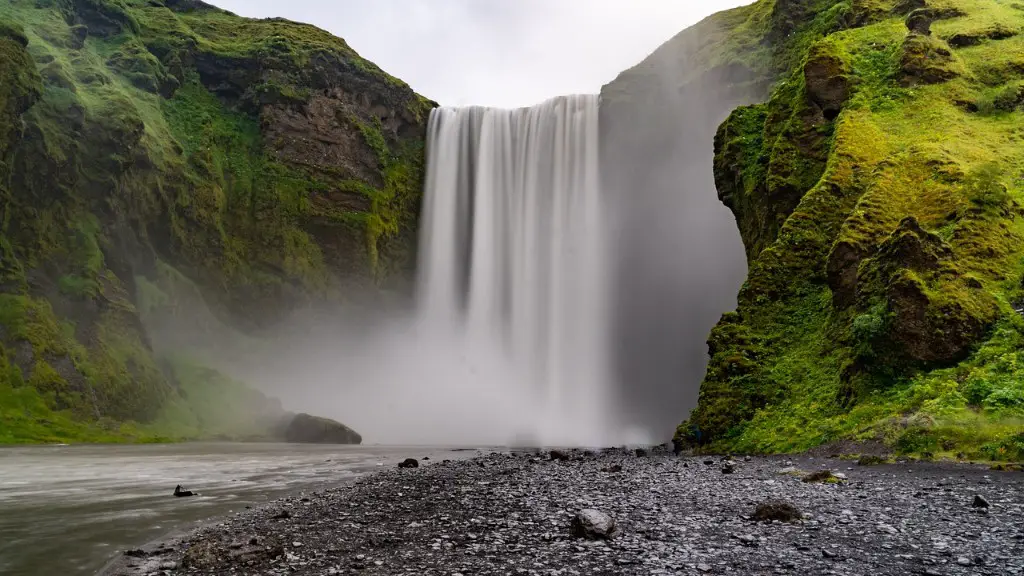Socio-economic Benefits
The Nile River was fundamental in giving rise to the Ancient Egyptian civilization, one of the most successful civilizations of its time. Its waters provided an efficient and reliable irrigation system, which allowed the Ancient Egyptians to improve their agricultural capabilities and produce more food than most other civilizations. This food was then traded and sold, allowing for a boost in the economy. There was plentiful access to papyrus and reeds, which were essential materials for paper, boats and baskets that could contribute to the country’s economy. Locals had easy access to travelling and cargo transportation, making the transportation of goods much simpler. Valuable resources like gold, copper and granite, could also be mined along the river, giving the Ancient Egyptians the ability to build a larger economy, fostering the growth of their civilization.
Health Benefits
The Ancient Egyptians benefited from the Nile in regards to their health. The river provided clean and drinkable water for the Ancient Egyptians, which was scarce in nearby regions. This allowed for the prevention of communicable diseases and other preventable health issues. Furthermore, the conditions of the river made it easy for domestic animals and vegetation to thrive, boosting food production, nourishment and immunity. This clean and safe water also offered Ancient Egyptians with a larger variety of fish, helping them to receive nutrients from the water in addition to the land.
Cultural Significance
The Nile River has played an immense role in the culture of Ancient Egypt, inspiring many of their gods and traditions. The Ancient Egyptians believed that Hapi, the god of the Nile, was responsible for “the giver of life”, providing water and thus, fertility, to their lands. This was the basis of their religion and government, attributing much of their success to this god and their belief in the value of water. The Nile also played a large role in Ancient Egyptian art. They depicted their river in representations of their gods and goddesses. Furthermore, Ancient Egyptians constructed many of Egypt’s oldest and most iconic monuments along the Nile, for instance, The Great Sphinx of Giza, which still stands today as a reminder of Egypt’s mysterious and ancient history.
Trade and Commerce
The Nile played a key role in Ancient Egypt’s foreign trade and commerce. Ancient Egyptian traders were able to send goods to lands and cultures on the river, establishing relationships that were essential in the trades of pottery, glass, jewellery, cosmetics, food and animals. This allowed for the Ancient Egyptians to access valuable resources that helped to enrich their culture and further develop their civilization.
Protection
In addition to its trade and health benefits, the Ancient Egyptians also used the Nile as a defense mechanism against foreign invaders. Its large quantity of water and depth posed as an obstacle to enemies and secured the kingdom against surprise attacks. Furthermore, the river was used to alert the local population of invasions, especially when enemies had access to boats and could navigate the river.
Worship
The Nile was considered by the Ancient Egyptians to be a sacred source of life, something that should be worshipped and honored. Ancient Egyptian kings and queens were thought to be “divine” and connected to the gods, making them the authority on the Nile and its live-giving power. Furthermore, priests and priestesses were specially assigned to keep up with and respect the river, offering daily rituals and prayers. This showed their dedication and respect for the mighty river and its contribution to the Ancient Egyptian civilization.
Geographical Impact
The Nile River played a tremendous role in the geographical makeup of Ancient Egypt. Areas near the river’s mouth, like the Delta and the former cities of Tanis, Bubastis and Pi-Ramesses flourished due to the ever-present water, rich soil, and natural resources. This allowed for large and populous cities to grow and strengthen. The river also served as a marker of political divisions. Countless boundaries, provinces and nomes were established by the Nile’s winding waters, which not only helped to make governing easier but also to maintain order and stability.
Influence on Music
The Nile River has profoundly impacted the music of Ancient Egypt. This is especially evident in the numerous pieces written about and dedicated to the river, many of which detail its importance in the life of Ancient Egyptians. Hymns and other musical offerings would actively celebrate the life-giving nature of the Nile.
Education Influence
The Nile River also had a large impact on Ancient Egyptians’ education. The waters of the river allowed for the development of an organized, advanced and respected education system. Here, the Ancient Egyptians were taught the skills needed for their agriculture, art and architecture, helping them to excel and better the civilization as a whole.
Frequently Used Technology
The Ancient Egyptians relied heavily on the technology used along the river to make their daily lives easier. This can be seen in the usage of sailboats, a type of boat that was built with sails or paddles that allowed people to decide which direction they wanted to travel. This technology was frequently used since it was one of the most cost-effective ways for the Ancient Egyptians to transport goods and people. Additionally, stationary boats were used to move larger cargo up and down the river.
Conclusion
The Nile River played an important role in the development and growth of Ancient Egyptian civilization. It symbolized life, fertility, strength and abundance. It brought health, wealth and protection to the people in the country. Its sacred waters provided the foundation upon which their culture, education and economy was built. The Nile River was the source of life for the Ancient Egyptians and it continues to be a source of inspiration and awe.


